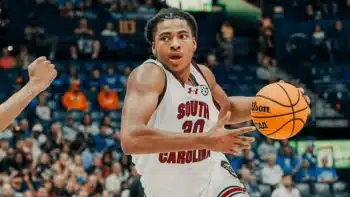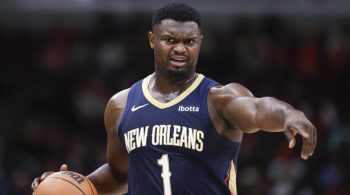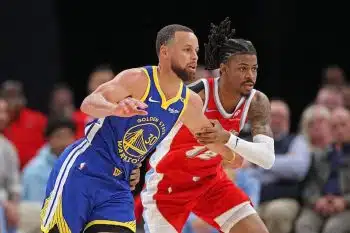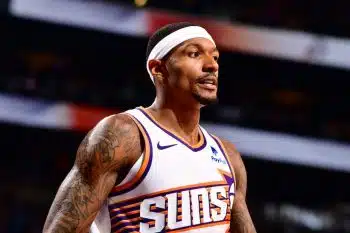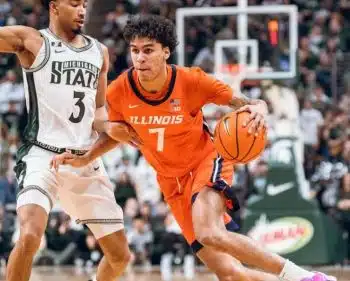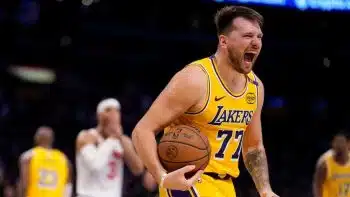NBA
David Nwaba and the Road Less Traveled
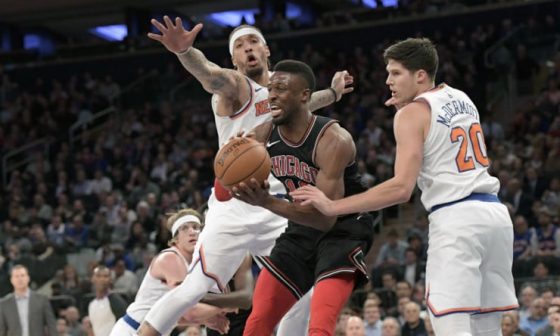
A player’s path to the NBA usually follows the same formula: A star in high school, a strong college career, and then eventually being selected in the NBA Draft. However, there are times when a player’s path is more unconventional. In the case of David Nwaba, he definitely took the path less traveled.
He attended University High School in West Los Angeles, where he was named All-Western League MVP twice as well as being an all-league selection. He finished his senior year in 2011 putting up 22.0 points per game and 11.5 rebounds per game.
He went to an NCAA Division 2 school, however, Hawaii Pacific University, but never suited up for them as he redshirted his freshman year. He played a year at Santa Monica Community College, where he was the Western State Conference South Division Player of the Year before transferring to Cal Poly San Luis Obispo. According to Nwaba, the decision to leave Hawaii Pacific was made with the NBA in mind.
“It was always a dream of mine, it’s also why I left a Division 2 school that I started at,” Nwaba told Basketball Insiders. “I had bigger dreams of playing D1 and potentially the NBA. So that was a dream of mine. I never thought the journey would go like this but it is how it is.”
Behind Nwaba, Cal Poly made their first-ever NCAA appearance in 2014. They won the Big West Tournament as the seventh seed out of eight teams, and then knocked off Dayton for the right to come in as a No. 16 seed against No. 1 seed Wichita State. Cal Poly would go on to lose to Wichita State, but sparking that run to March Madness put Nwaba on the basketball map.
He didn’t get to the NBA right away, though. His first professional experience came with the then Los Angeles D-Fenders, now South Bay Lakers, the Los Angeles Lakers G-League affiliate. He initially began with the Reno Bighorns, the Sacramento Kings affiliate, but his rights were traded to Los Angeles. His strong play in the G-League was what caught the Lakers’ attention, enough to give him a pair of 10-day contracts, and then one for the rest of the season.
“It was a perfect spot to start up my professional career The G-League is a place to develop your game, and I think I developed a lot,” Nwaba told Basketball Insiders. “I learned a lot about the game, and I think it was a good place for me to start just out of college.”
Although he made a strong impression on the Lakers, Nwaba found out that nothing is ever guaranteed in the NBA. Due to a roster crunch when the team signed Kentavious Caldwell-Pope over the summer, the Lakers ended up cutting him. He didn’t stay unemployed for long though. Before he had a chance to hit the open market, the Chicago Bulls claimed him off waivers.
He’s since carved out a role as one of the Bulls most dependable players in the second unit. And just like his path to the league, his role is a bit of an unconventional one as a shooting guard. He’s shooting 51.7 percent from the field, but most of his shots come from in the paint. He only shoots 26.3 percent from three-point range. It’s been effective for him though.
“It’s just bringing energy off the bench and just being that defender,” Nwaba told Basketball Insiders. “For the most part, I just try to be aggressive going to the basket, finishing at the rim, making the right plays, just defending and playing hard.”
The Chicago Bulls got off to a slow start this season. They lost 17 of their first 20 games. In December, they started to pick up their play, winning 11 of their 20 games including a seven-game win streak. However, they’ve now dropped eight of their last 11 games. Despite that, Nwaba does see some encouraging signs. And in the Eastern Conference, he’s not quite ready to count out another run.
“We’re developing every game, just building chemistry amongst each other,” Nwaba told Basketball Insiders. “Who knows, all it takes is just a streak of eight to ten games or something and we’re already back in the playoff race. You never know, anything can turn around. It’s still a long season, a lot of games to be played, and a lot of time to develop our game. We’ve still got a lot of time with each other.”
